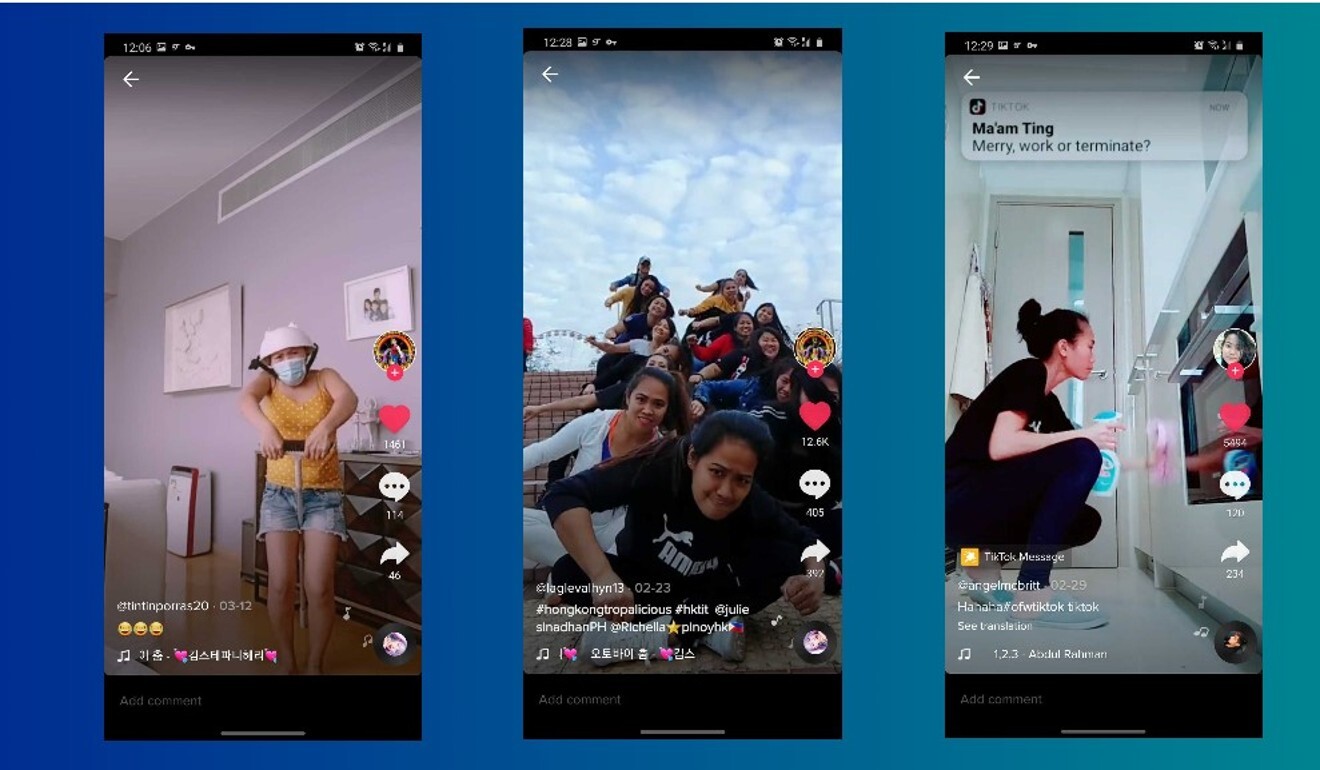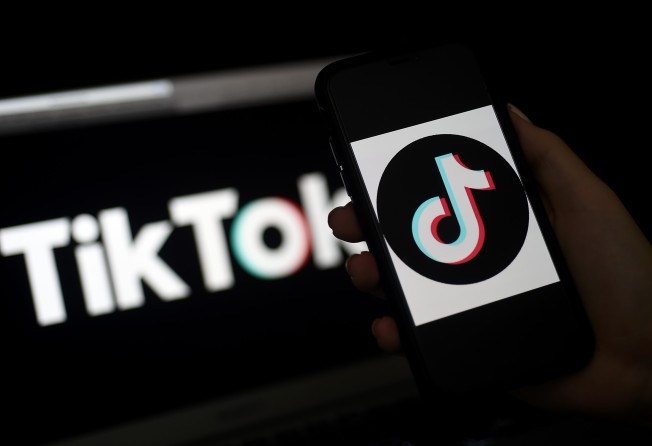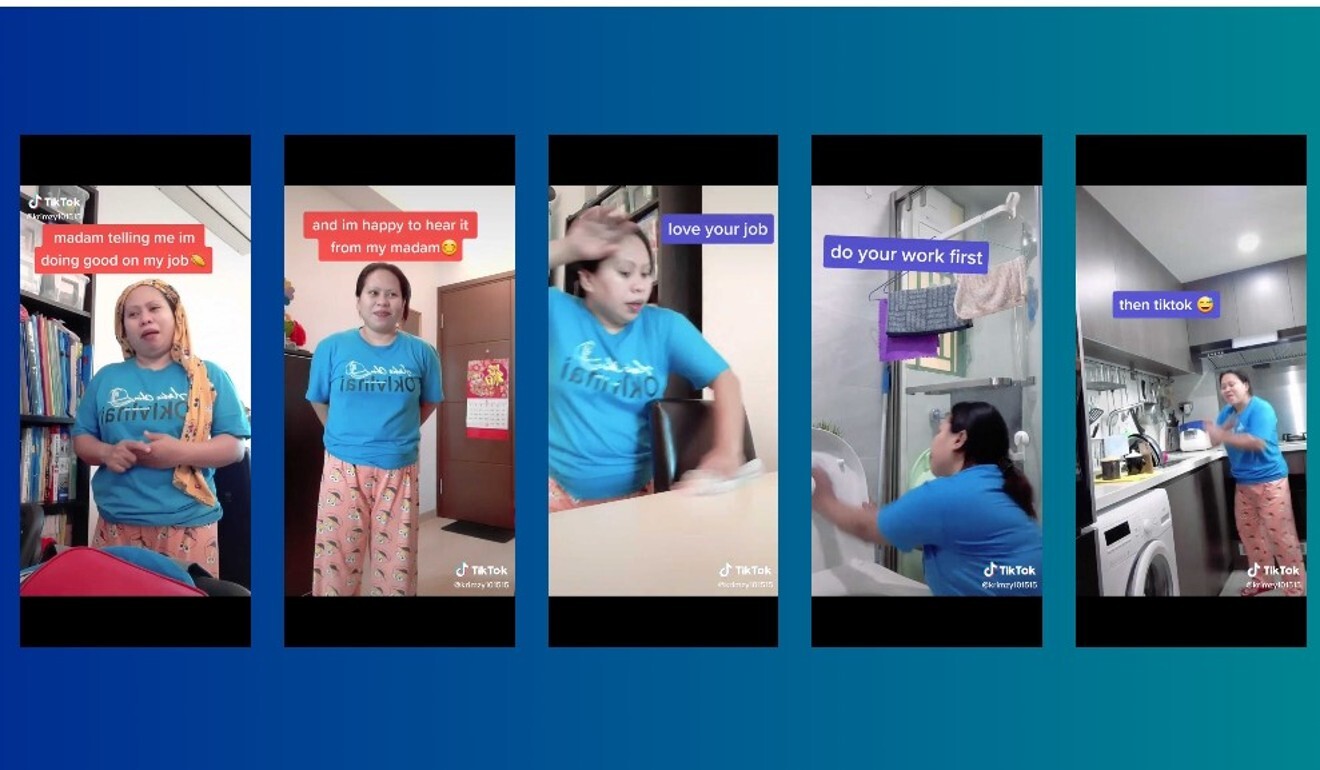
TikTok was a ‘stress reliever’ for Hong Kong’s domestic helpers, but now it’s gone
- Before TikTok left Hong Kong, it was a refuge among the city’s 400,000 domestic helpers during the Covid-19 pandemic
- Some domestic helpers are now turning to YouTube and Facebook but fear the sites could be banned after the city’s new national security law

I met Raine on Sunday afternoon. She was practising her dance moves for an online video in Hong Kong’s busy Tamar Park. Two of Raine’s friends stood by, while another recorded the video.
In the past, this video might have wound up on TikTok. The short video app remains a popular destination for goofy skits, lip-synching and dance routines. It’s become widely known for its appeal to teenagers, but TikTok also became a surprising hit among domestic helpers in Hong Kong.
“It’s easy to use, you can dance, add the text,” said Raine, who declined to give her full name. “[It’s a] stress reliever”
But TikTok is no longer available in the city. Last week, the app’s Chinese owner ByteDance removed TikTok from Hong Kong app stores and blocked users in the city from accessing the app. The move was in response to a sweeping new national security law that requires internet service providers to assist police with national security requests, even without a warrant.
Many in the city were quick to voice concerns about how the law could affect freedom of speech and privacy. Facebook, Twitter, Google and other platforms announced that they would pause cooperating with police in Hong Kong until the situation is clearer.
ByteDance didn’t say exactly how many users it had in the city before TikTok vanished from app stores last Thursday. The company said last year that it had 150,000 Hong Kong users.
For domestic helpers like Raine, who has been using the app daily for more than a year, losing access to TikTok is disappointing.

The 400,000 helpers employed across Hong Kong come to the city to help with household chores and take care of children and the elderly. The majority are women from Southeast Asia, primarily Indonesia and the Philippines. They often leave behind their own families to make money to send back home.
Most helpers only get one day off a week: Sunday. On that day, many congregate in parks, beaches, parking lots, overpasses and anywhere else they’re allowed with picnic blankets, food and entertainment – often on their phones.
Not far from Raine and her friends, another group of domestic helpers were preparing their own dance routine for video streaming.
“After we finish work, we watch on TikTok people dancing, acting, being funny,” said one of the women in the group, who gave her name as Regin.
Domestic helpers didn’t just use TikTok to spread their dance routines, though. Some also turned the drudgery of household work into short clips.
One popular TikTok meme shows a domestic worker trying to stealthily film a quick dance video only to have the routine interrupted by a message from their employer: “Work or terminate?” Employers would also sometimes join the fun, filming comedic clips or dancing with their employees.

In one popular video, creator and domestic helper Emma Ortiz runs around her employer’s apartment in joy with accompanying text reading, “when my family employer go on vacation, [I’m] all alone”.
Some domestic helpers like Ortiz have managed to generate thousands of likes and shares on their videos, turning them into influencers. The related hashtag #proudofw, meaning “proud overseas foreign worker”, has more than 15 million views. Known on TikTok as @krimzy101515, Ortiz now has more than 15,000 followers.
Like Raine, Regin and her friends also used TikTok as a “stress reliever”. And with the Covid-19 pandemic this year, stress levels have been increasing for Hong Kong’s domestic helpers.
“We have seen a lot of financial uncertainty,” said Zamira Monteiro of Enrich, a charity promoting the economic empowerment of migrant domestic helpers. “There’s been a lot of stress and worry over job losses that have happened in the community because the employers have relocated or the employers themselves have lost their jobs.”
In addition to financial troubles, added stress has come from travel restrictions and periodic restrictions on gatherings in the city. This has made it difficult for domestic helpers to see friends and family and attend religious gatherings.
“Of course many of them turned to online activities because that was available to them,” Monteiro said.

ByteDance has said that the Chinese version of TikTok, called Douyin, will still work in Hong Kong, although it’s not available in app stores outside mainland China. But its Chinese interface and the fact that most of its content is geared towards mainland Chinese users is likely to put off international users.
TikTok, of course, is not the only option in town. Advice on avoiding restrictions by using tools like VPNs or switching SIM cards has started circulating online. The performers in the park were aware of these new tricks. But some have instead turned to platforms such as Facebook and YouTube to upload their content.
Lecnaj Ybañez Rolbmet is a Philippine domestic helper who has been publishing a vlog about her life in Hong Kong. She uploads her videos to both YouTube and Facebook, which she used in addition to TikTok before it was blocked. But recent moves from those social media giants have made her wonder about the future of those platforms too.
“Now I am scared about rumoured news about blocking Facebook and Google,” she said.